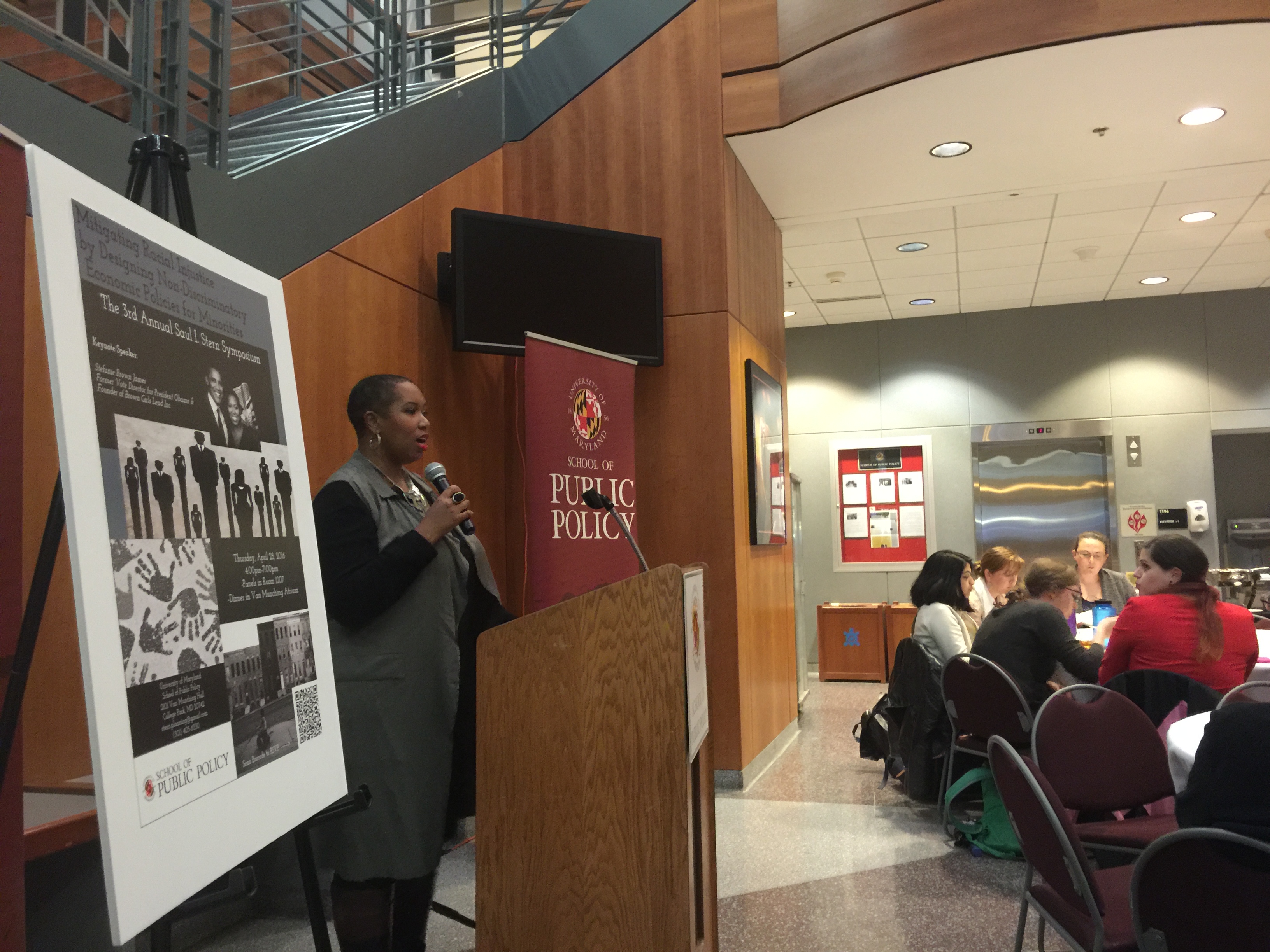By Chris Spencer
For The Diamondback
The public policy school hosted its third annual Saul I. Stern Symposium Thursday afternoon, which addressed racial inequity, injustice and the U.S. economy.
The student-led event, which took place in the public policy school and drew an audience of about 50 people, included two sections — a panel focusing on the cause and effect of economic inequality and one on economic mobility and policy solutions.
The event opened with Robert Orr, the dean of the public policy school, detailing challenges for students who look for answers to sensitive problems instead of dismissing them as impossible.
“Sometimes when things are complex, our instinct is to put our heads in the sand,” Orr said. “But we have a solution and approach, and the right people here to help us work on some solutions.”
During the Causes and Effects of Economic Inequality panel, criminology professor Brian Johnson fostered a conversation around criminal justice reform and minorities in the system. Johnson discussed the news about General Attorney Loretta Lynch requesting criminal reform, investigating discrimination against minorities and coming up with a better system for inmate releases in the country.
“We have the highest incarceration in the world, as one of the most developed countries in the world,” said Johnson, who is also the graduate director of the Criminology and Criminal Justice program.
In the Economic Mobility and Policy Solutions panel, Sabrina Terry, the project manager of the Wealth Building Initiative at the National Council of La Raza, talked about her organization’s advocacy in helping Latino families generate economic opportunities.
“In 2013, white families had 10 times the wealth than Latino families, and it was nearly a $128,000 difference,” Terry said.
Keynote speaker Stephanie Brown James, who served as the national African-American vote director for the America Campaign for President Obama’s reelection, also spoke at the event. James told the audience of mostly students to attempt to solve the problems that people in higher positions have failed to fix.
“Your job as students is to figure out how can we come up with policy solutions,” she said.
She concluded the event by stressing the importance of being a community leader and understanding the values of black lives.
Kelsey Goetz, a graduate student in public policy, said the conservation of race has greatly improved since the recent events of unrest, such as Michael Brown’s death in August 2014.
“I think it is a really great way to talk about the issues that have become super prevalent,” Goetz said. “Ever since the death of Michael Brown, I think a lot of people are starting to talk more about race.”
Jocelyn O’Rourke, a senior public policy major, said she thought the event shed light on issues such as white privilege, and she gave a new perspective of minority struggles.
“The fact [the event] talked about racial injustice and inequality…that is why I came,” O’Rourke said. “I think most people take for granted not knowing the other side, whether it’s white privilege or not understanding the other side.”



